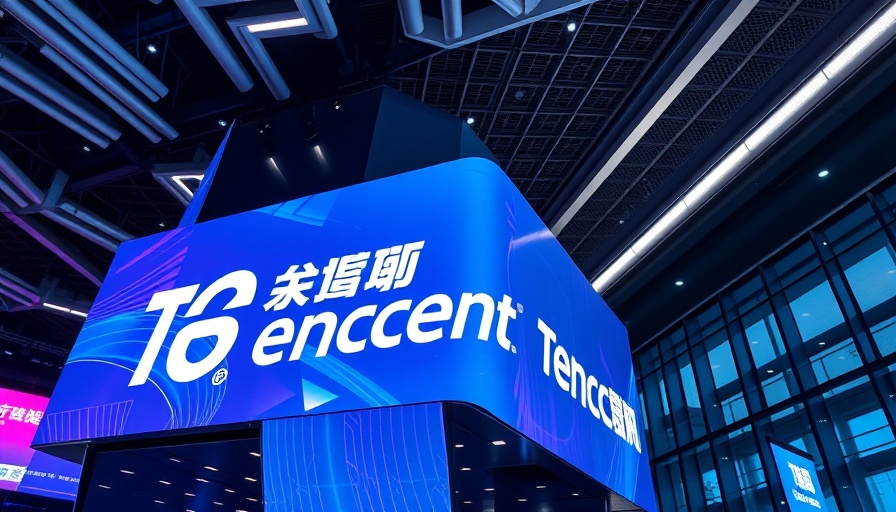
Tencent's Bold Move with Hunyuan Turbo S: Fast-Track AI Innovation
Tencent, a leading global player in technology and gaming, has unveiled its latest artificial intelligence model, the Hunyuan Turbo S. This new model is designed to challenge DeepSeek, a startup known for its impressive AI technologies. Tencent claims that Hunyuan Turbo S processes queries faster than DeepSeek-R1, a model that gained substantial recognition for its capabilities. According to Tencent, their latest AI can respond to user inquiries in under one second, marking a significant leap in AI response times.
The Race Among AI Titans
The launch of Hunyuan Turbo S comes at a crucial time as competition heats up in the AI sector, particularly between Chinese firms and Western counterparts. DeepSeek recently captured headlines with its new chatbot that reportedly rivals OpenAI's ChatGPT but at a lower development cost. This has raised critical considerations about the future of AI development costs and capacities, positioning Hunyuan Turbo S in direct competition not only with DeepSeek but potentially with industry giants like OpenAI and Anthropic.
Integrating Speed and Performance in AI
According to Tencent, Hunyuan Turbo S is not just about raw speed. This model employs a unique Hybrid-Mamba-Transformer fusion architecture, which enhances both short and long chain thinking. This enables the model to exhibit a combination of fast thinking—providing instant answers—and improved scientific reasoning.
Tencent emphasizes that this 'fast-thinking' capability aligns the AI's performance more closely with human intuition, suggesting a future where AI can engage more effectively in complex reasoning tasks.
Market Disruptions and Industry Implications
Gokul Naidu, a consultant, argues that DeepSeek's recent achievements serve as a wake-up call to the AI industry. The emphasis on lower-cost models challenges existing business paradigms, shifting the focus from merely powerful solutions to those that are financially sustainable. Tencent's Turbo S, while quick, may also potentially drive prices down across the industry, benefiting users looking for quality performance at a reasonable cost.
Furthermore, the introduction of Hunyuan Turbo S raises questions about data privacy and security practices, particularly against the backdrop of DeepSeek's prior issues with regulatory compliance. As AI continues to evolve, the implications of model performance are intertwined with ethical and legal considerations that demand close scrutiny from both developers and regulators.
Challenges Ahead: Navigating Global Markets
Despite its promising advancements, Tencent may face hurdles in reaching global markets. The U.S. Department of Defense recently designated Tencent as a Chinese military company, which could restrict investments and collaboration opportunities in the U.S. These geopolitical factors could hinder its ability to fully realize the potential of Hunyuan Turbo S and capitalize on its technological advancements.
The Future Landscape of AI
Looking forward, the AI landscape is poised for further evolution. With models like Hunyuan Turbo S pushing the boundaries of speed and capability, the market is likely to see an influx of innovative approaches to AI processing.
As competition tightens among technology giants, the pressure could lead to a faster adoption of AI technologies in sectors ranging from finance to customer service, delivering enhanced efficiencies and capabilities across industries.
AI enthusiasts should keep a close eye on these developments, as Tencent's strategy could pave the way for new standards and applications of artificial intelligence, ultimately influencing how we interact with technology and the data that surrounds us.
 Add Row
Add Row  Add
Add 


Write A Comment